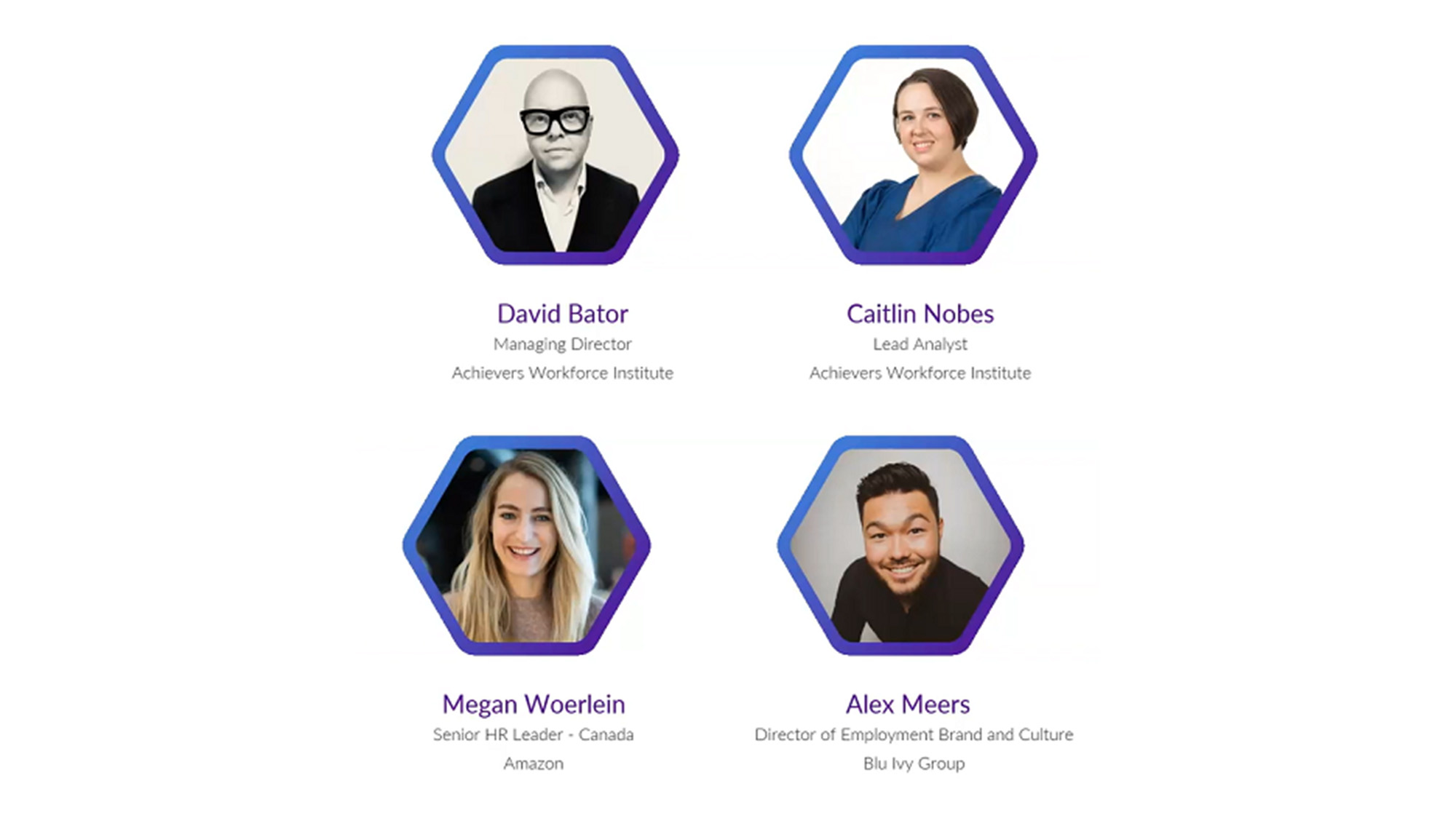Microsoft: Business leaders' flawed approach to hybrid work is alienating employees
Report reveals that business leaders no longer understand their employees who plan to flee the nest for better and more flexible workplaces


Microsoft's annual Work Trends Index has revealed business leaders are vastly out of touch with their employees and what they expect from their company.
The report, which examines the key factors impacting workplaces and the trends for the coming year, showed that most managers feel senior leaders don’t provide them with enough influence in the office to enact the positive change their employees want to see.
There is a wide gap in understanding between senior leaders, managers, and lower-level employees, according to the report and this is emphasised in most organisations' approaches to the post-COVID return to the office.
Microsoft said exactly half the number of businesses it questioned said they were planning a full-time in-person return to the office, or already require that traditional working arrangement.
This is contrasted by the data that showed workers are seeking more flexibility in their workplace, with hybrid workers wanting to go fully remote and remote workers seeking a more hybrid approach.
A considerable percentage of surveyed employees (43%) said they are likely to consider changing jobs in the coming year and 30% of respondents said they prioritise where they work and would consider finding a remote job if it meant they could live in the area they want to.
A Gartner report published earlier this month showed IT workers were least likely to stay in their current jobs compared to workers in other industries and linked the dissatisfaction with corporate policies mandating a return to the office.
Get the ITPro daily newsletter
Sign up today and you will receive a free copy of our Future Focus 2025 report - the leading guidance on AI, cybersecurity and other IT challenges as per 700+ senior executives
Longer days, less breathing room
Microsoft also said workers crave flexible working, but it shouldn’t come at the cost of feeling like they always have to be reachable by their employer outside of work hours.
According to the company’s research, the amount of after-hours work the length of a typical workday are both increasing - two factors that employees are actively trying to manage as they tackle a hybrid and remote job.
Data taken from the likes of Teams and Outlook showed that although Microsoft observed a 252% increase in time spent in meetings weekly, and a 32% increase in chats sent per person, workers are taking active steps to prevent working beyond their contracted hours.
RELATED RESOURCE

Such steps include becoming more intentional about taking breaks, avoiding double-booking of meetings, establishing meeting-free times in the workweek.
All of these measures show how employees are placing greater importance on their personal wellbeing, and this was one of the key highlights of the report.
Most respondents said they are prioritising themselves over their work while nearly half (47%) said they’re more likely to put family and friends before work than before.
For employers looking to demonstrate their commitment to preserving their employees’ wellbeing, taking steps like limiting the number of meetings and opting to summarise discussion on email, setting clear breaks for teams to recharge, and avoiding sending emails or chats during non-work hours can help foster a better work culture, Microsoft said.
Decaying relationships harms business output
Another core highlight of the report was that senior leaders need to create ways of building and rebuilding social capital within teams and the wider workplace, if hybrid work environments are to be embraced.
A recurring workplace trend is that teams are becoming more siloed; hybrid workers said they’re managing to maintain their relationships but remote workers reported not having “thriving” relationships with their colleagues.
This means business leaders need to place an emphasis on creating environments, or dedicated time and space, for employees to connect with each other and make time to recoup the lost opportunity to build social capital that’s usually gained through day-to-day general office talk.
“Social capital has to do with the resources and opportunities you have access to because of your relationships,” said Nancy Baym, principal researcher at Microsoft Research. “When people trust one another and have that kind of capital, you get a willingness to take risks, you get more innovation and creativity and less groupthink.”
Microsoft said this won’t be an easy task, but it is hugely important for employees and overall output. Employees who hold strong relationships report considerably better wellbeing than those who don’t and employee productivity is also much higher when workers have good connections to their immediate team members.

Connor Jones has been at the forefront of global cyber security news coverage for the past few years, breaking developments on major stories such as LockBit’s ransomware attack on Royal Mail International, and many others. He has also made sporadic appearances on the ITPro Podcast discussing topics from home desk setups all the way to hacking systems using prosthetic limbs. He has a master’s degree in Magazine Journalism from the University of Sheffield, and has previously written for the likes of Red Bull Esports and UNILAD tech during his career that started in 2015.
-
 Cleo attack victim list grows as Hertz confirms customer data stolen
Cleo attack victim list grows as Hertz confirms customer data stolenNews Hertz has confirmed it suffered a data breach as a result of the Cleo zero-day vulnerability in late 2024, with the car rental giant warning that customer data was stolen.
By Ross Kelly
-
 Lateral moves in tech: Why leaders should support employee mobility
Lateral moves in tech: Why leaders should support employee mobilityIn-depth Encouraging staff to switch roles can have long-term benefits for skills in the tech sector
By Keri Allan
-
 IT professionals aren’t budging on flexible work demands – and more than half say they’ll quit if employers don’t meet expectations
IT professionals aren’t budging on flexible work demands – and more than half say they’ll quit if employers don’t meet expectationsNews Analysis from Randstad shows 40% of UK-based IT pros have quit over a lack of flexible work options, while 31% of workers globally have done the same.
By Ross Kelly
-
 'The tide seems to be turning towards office attendance': 64% of hybrid business leaders want staff back in the office – but many worry that enforcing RTO mandates will drive employees away
'The tide seems to be turning towards office attendance': 64% of hybrid business leaders want staff back in the office – but many worry that enforcing RTO mandates will drive employees awayAnalysis Many UK business leaders want their staff back in the office more frequently, but they’re scared to implement return to office (RTO) mandates in fear of worker revolts.
By George Fitzmaurice
-
 Employees are dead set on flexible working arrangements – three quarters would turn down a role that didn't offer hybrid options as work-life balance becomes more important than pay
Employees are dead set on flexible working arrangements – three quarters would turn down a role that didn't offer hybrid options as work-life balance becomes more important than payNews New research shows workers are increasingly demanding flexible working arrangements from employers.
By Emma Woollacott
-
 Nearly half of tech workers are seeking new roles – declining employee benefits and reduced flexible working options have staff looking elsewhere
Nearly half of tech workers are seeking new roles – declining employee benefits and reduced flexible working options have staff looking elsewhereNews While salaries are rising for tech workers, other benefits are in decline, leading to a fall in job satisfaction
By Emma Woollacott
-
 Untethered: How CIOs and CISOs are paving the way for the new hybrid workforce
Untethered: How CIOs and CISOs are paving the way for the new hybrid workforceWhitepaper Effective techniques to transition from exposed legacy infrastructure to an effective zero trust strategy
By ITPro
-
 Unified endpoint management and security in a work-from-anywhere world
Unified endpoint management and security in a work-from-anywhere worldWhitepaper Learn how to converge endpoint management and security processes and systems to drive efficiency and reduce risk
By ITPro
-
 Why flexible working is critical to ensure talent retention
Why flexible working is critical to ensure talent retentionAdvertorial The changing face of flexible working will be the focal point of a webinar hosted by the Achievers Workforce Institute on July 12
By ITPro
-
 Hybrid work means we’re burning out harder and faster than ever
Hybrid work means we’re burning out harder and faster than everIn-depth Technology has fueled an always-on culture that’s turbocharged a new breed of burnout, but technology can also come to the rescue
By Sandra Vogel